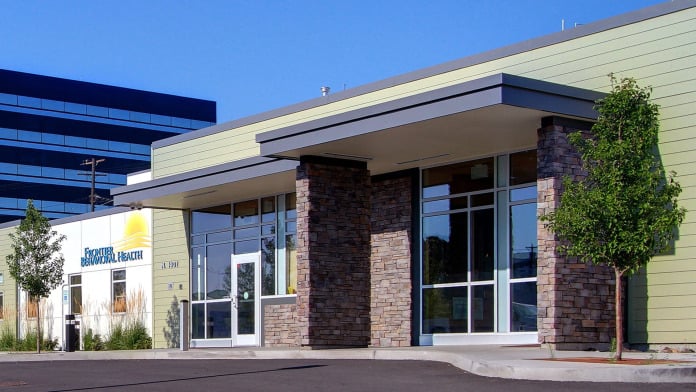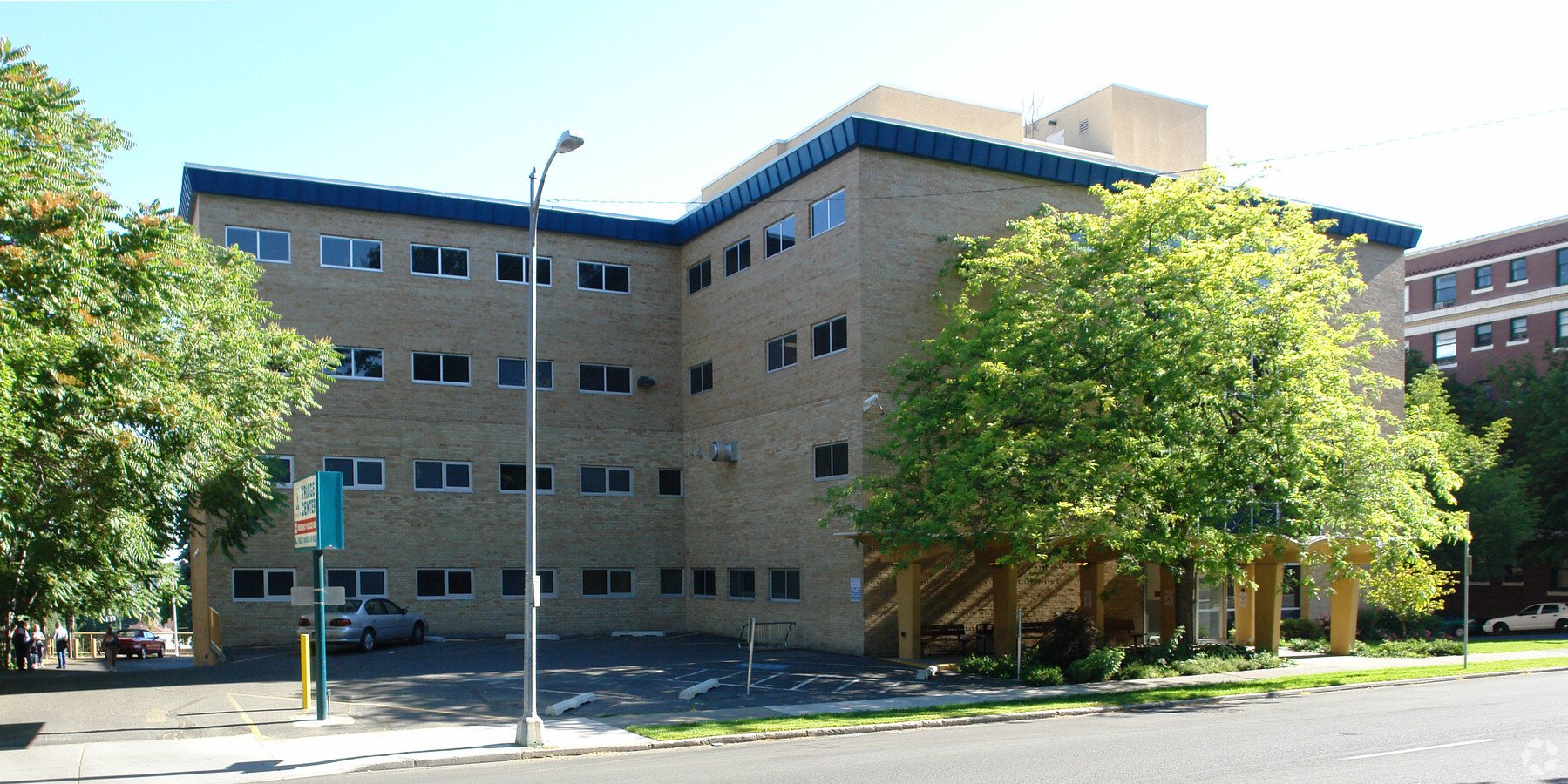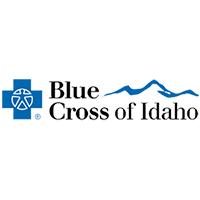This is a beautiful place! the facilities are wonderful, this place has the perfect environment to receive any kind of treatment. I really recommend it.
About State Hospital North
The facility can hold up to 55 people at a time. Their goal is to stabilize you and address your symptoms so you can return to your community as soon as possible. Once they’ve reached that point, they’ll work with you and your family to decide what the next best step should be. They work closely with regional mental health centers that can offer follow up support after your hospitalization is over.
One of the things I like about this facility is that they balance medication and therapy with hands on activities to help you heal physically, mentally, and emotionally. During your inpatient treatment, you’ll participate in counseling sessions to help you understand and address your behavior. You’ll also exercise, focus on your nutrition, and attend educational classes that teach you how to live in recovery. If you need primary care at any point, they offer those services, too.
While one former client calls this the best place to go for inpatient care, others have shared stories of unprofessional conduct from the staff members and say the team’s communication needs serious work.
Facility Overview
Latest Reviews
Rehab Score
Gallery

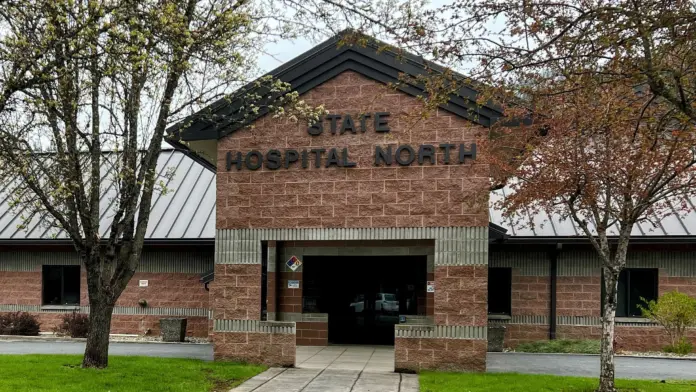

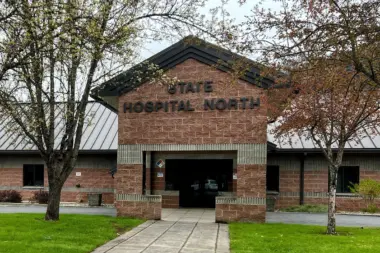
Accepted Insurance
Other Forms of Payment
Private insurance refers to any kind of healthcare coverage that isn't from the state or federal government. This includes individual and family plans offered by an employer or purchased from the Insurance Marketplace. Every plan will have different requirements and out of pocket costs so be sure to get the full details before you start treatment.
Self-pay involves paying for treatment out of your own pocket. You can use savings or credit, get a personal loan, or receive help from family and friends to fund your treatment. If you don't have insurance or your insurance plan doesn't cover a specific program, self-pay can help ensure you still get the care you need.
Financial aid can take many forms. Centers may have grants or scholarships available to clients who meet eligibility requirements. Programs that receive SAMHSA grants may have financial aid available for those who need treatment as well. Grants and scholarships can help you pai for treatment without having to repay.
Sliding scale payments are based on a client's income and family size. The goal is to make treatment affordable to everyone. By taking these factors into account, addiction recovery care providers help ensure that your treatment does not become a financial burden to you or your family, eliminating one barrier to care.
Military members, veterans, and eligible dependents have access to specific insurance programs that help them get the care they need. TRICARE and VA insurance can help you access low cost or no cost addiction and mental health treatment. Programs that accept military insurance often have targeted treatment focused on the unique challenges military members, veterans, and their families face.
Medicaid is a state based program that helps lower-income individuals and families pay for healthcare. Medicaid covers addiction treatment so those enrolled can use their coverage to pay for rehab. When a program accepts Medicaid the client often pays very little or nothing out of their own pocket.
Addiction Treatments
Levels of Care
Clients requiring treatment in an inpatient rehab are often those who need stabilization support as they exit detox or contend with a life crisis. Residing at the treatment facility enables clients to focus exclusively on their recovery. They engage in extensive psychotherapy and recovery-focused life skills training to support their sustained sobriety and prepare them for outpatient and community-based care. Evidence-based holistic therapies, such as experiential therapy and meditation, are also commonly available.
The initial phase of addiction treatment typically involves 24-hour clinical care in Idaho. During this time, medical staff supervise the withdrawal process and treat any adverse symptoms or reactions that occur. These medical experts can prescribe and administer a number of medications proven to ensure the recovery process goes smoothly. For alcohol detox, benzodiazepines, valium, and Librium are often used to relieve symptoms of alcohol withdrawal. For cocaine detox, antidepressants such as desipramine or phentermine are used to treat cocaine withdrawal.
Outpatient rehab programs are generally less intensive than inpatient care and are designed principally for clients who are medically stable, who have completed detox and/or inpatient care, and who are not at an elevated risk of relapse. Evening, night, and weekend services are commonly available, and most outpatient rehabs offer a variety of treatment modalities to align with clients' unique needs. These typically include psychotherapy, recovery-focused life skills training, and/often, medication assisted treatment (MAT).
Medical detox is the process of removing addictive substances from your body in a medically supervised setting. With the aim of keeping you as safe and comfortable as possible, a team of licensed medical professionals monitors your vitals and may provide medications if needed to alleviate any withdrawal symptoms. Medically assisted detox is generally partially covered by most private insurance and insurance plans under the Affordable Care Act.
Treatments
Many of those suffering from addiction also suffer from mental or emotional illnesses like schizophrenia, bipolar disorder, depression, or anxiety disorders. Rehab and other substance abuse facilities treating those with a dual diagnosis or co-occurring disorder administer psychiatric treatment to address the person's mental health issue in addition to drug and alcohol rehabilitation.
Mental health rehabs focus on helping individuals recover from mental illnesses like bipolar disorder, clinical depression, anxiety disorders, schizophrenia, and more. Mental health professionals at these facilities are trained to understand and treat mental health issues, both in individual and group settings.
Alcoholism is compulsive alcohol consumption that results in significant physical and mental health problems. A person with alcoholism, or alcohol use disorder (AUD), is typically unable to stop drinking on their own and experiences withdrawal symptoms if they do stop. Treatment at alcohol rehab in Idaho is necessary to break this dependency. This treatment process provides the detox, therapies, and support systems needed to achieve and maintain long-term recovery.
Drug rehab in Idaho provides treatment for addiction to drugs. It usually includes a combination of treatment methods that can involve counseling, medication, and a variety of evidence-based therapies. Programs are designed to help individuals manage their substance use disorder long-term.
Substance abuse treatment programs in Idaho may be able to address the unique needs of individuals struggling with drugs and alcohol. These rehab programs include detox, medication-assisted treatment, residential drug and alcohol rehab, and outpatient programs. Therapies like cognitive behavioral therapy, or dialectical behavioral therapy, trauma-informed therapy, and process groups address the underlying causes of addiction. You'll also learn coping skills, relapse prevention strategies, and tools to enhance your relationships — which are skills for long-term recovery.
Programs
Adult rehab programs include therapies tailored to each client's specific needs, goals, and recovery progress. They are tailored to the specific challenges adult clients may face, including family and work pressures and commitments. From inpatient and residential treatment to various levels of outpatient services, there are many options available. Some facilities also help adults work through co-occurring conditions, like anxiety, that can accompany addiction.
Young adulthood can be an exciting, yet difficult, time of transition. Individuals in their late teens to mid-20s face unique stressors related to school, jobs, families, and social circles, which can lead to a rise in substance use. Rehab centers with dedicated young adult programs will include activities and amenities that cater to this age group, with an emphasis on specialized counseling, peer socialization, and ongoing aftercare.
Recovery is most successful when clients feel accepted and validated by their peers and treatment providers. Facilities that offer LGBTQ-inclusive programming are committed to creating a safe space where everyone can grow and recover without fear of judgment or discrimination. They will have dedicated policies in place to create a safe and supportive environment that fosters free expression.
The providers who specialize in the children's rehab space understand the specialized needs that this population faces. School-based and social services such as tutoring and family counseling are often central to treatment. Child programs may also address the needs of youth experiencing substance abuse in the home, including a parent's or sibling's addiction.
Clinical Services
Research has shown that cognitive behavioral therapy (CBT) in Idaho is one of the most effective forms of therapy to treat substance use disorders and accompanying mental health disorders such as anxiety and depression. The focus of this method is to learn about and change patterns of thinking and behavior.
Dialectical Behavior Therapy (DBT) is a modified form of Cognitive Behavioral Therapy (CBT), a treatment designed to help people understand and ultimately affect the relationship between their thoughts, feelings, and behaviors. DBT is often used for individuals who struggle with self-harm behaviors, such as self-mutilation (cutting) and suicidal thoughts, urges, or attempts. It has been proven clinically effective for those who struggle with out-of-control emotions and mental health illnesses like Borderline Personality Disorder.
Group therapy is any therapeutic work that happens in a group (not one-on-one). There are a number of different group therapy modalities, including support groups, experiential therapy, psycho-education, and more. Group therapy involves treatment as well as processing interaction between group members.
In individual therapy, a patient meets one-on-one with a trained psychologist or counselor. Therapy is a pivotal part of effective substance abuse treatment, as it often covers root causes of addiction, including challenges faced by the patient in their social, family, and work/school life.
Part of recovery is replacing unhealthy habits with healthy life skills. These include psychological skills and social skills that allow you to thrive post treatment. While in rehab in Idaho, you'll work on developing these skills so you have the tools you need for a new life.
Chronic substance use leads to biochemical imbalances that contribute to cravings and poor mental health. Nutrition therapy works to restore balance by giving your body the nutrients it needs for optimal performance.
Nicotine replacement therapy gives your body a small, controlled amount of nicotine to reduce withdrawal and cravings. Formats include patches, gum, and lozenges. These tools can double your chances of quitting long term.
Amenities
-
Residential Setting
-
Private Rooms
Staff
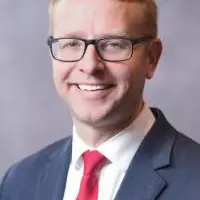
Alex J. Adams, PharmD, MPH
Director

Michael Pearson
Deputy Director Operations
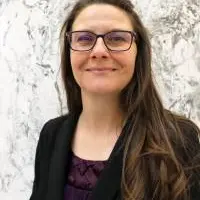
Misty Lawrence
CFO

Teresa I. Shackelford
Administrator
Contact Information
300 Hospital Drive
Orofino ID, 83544
